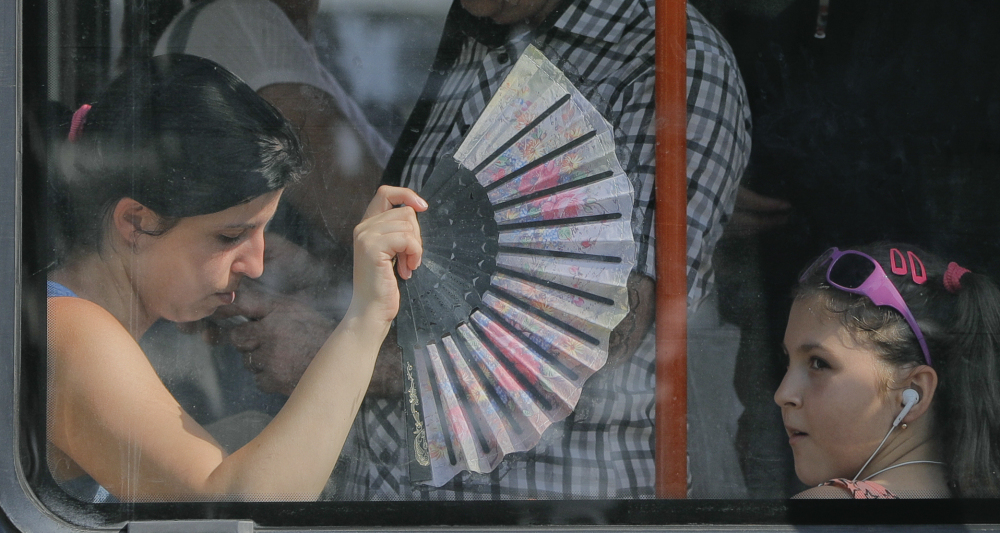BELGRADE, Serbia — No wonder it’s been dubbed “Lucifer.”
A relentless heat wave that gripped parts of Europe this week has sent temperatures soaring to record highs for several days, causing at least two deaths and prompting authorities to issue severe weather warnings.
“It is just too much,” real estate agent Sasa Jovanovic, 52, said during an early morning walk in Serbia’s capital, Belgrade, where the temperature was forecast to hit 102 degrees Saturday. “Sometimes it feels as if I cannot breathe.”
The extreme heat stifling Serbia, Romania, Croatia and parts of Spain, France and Italy has fueled wildfires, damaged crops and strained energy and water supplies. Authorities in some areas issued traffic restrictions and banned outdoor work during the hottest part of the day.
Spain’s national weather service on Saturday issued an emergency warning for high temperatures in 31 provinces as forecasts predicted temperatures of up to 111.
Western and northern Europe, in contrast, was experiencing colder and wetter weather.
Although southern Europe is used to scorching summers, meteorologists have warned that hot spells lasting several days aren’t that common.
The public health institute in Belgrade issued heat instructions, telling people to keep wet towels on windows if there is no air conditioning, and avoid physical strain and alcohol.
Thousands of residents sought refuge from the heat at the city’s recreation area, swimming in the local lake and the Danube or the Sava rivers. Some of those who ventured to the city center dipped their feet or wet their hair in the fountains.
The high temperatures came as a shock to Australian Mira Balic, who was visiting Serbia at a time when it’s winter in the Southern Hemisphere. Belgrade was among the hottest cities in Europe on Saturday and hotter than Egypt’s capital, Cairo – which is normally far hotter than central Europe.
“I came here from Australia, where the temperature is 39,” Balic gasped. “This heat is killing me!”
Animal rights groups urged citizens to place plastic bowls with water outside their buildings and in parks for the city’s many stray dogs.
In Croatia, health authorities have reported a surge in emergency calls over the past week. They appealed to the thousands of tourists vacationing along the country’s Adriatic coast to be careful on the beaches and while traveling.
In Romania, police banned heavy traffic on major roads in daylight hours during the week At the Budapest Zoo, a pair of polar bear cubs, were given huge chunks of ice and freezing-cold watermelons.
Send questions/comments to the editors.



Success. Please wait for the page to reload. If the page does not reload within 5 seconds, please refresh the page.
Enter your email and password to access comments.
Hi, to comment on stories you must . This profile is in addition to your subscription and website login.
Already have a commenting profile? .
Invalid username/password.
Please check your email to confirm and complete your registration.
Only subscribers are eligible to post comments. Please subscribe or login first for digital access. Here’s why.
Use the form below to reset your password. When you've submitted your account email, we will send an email with a reset code.